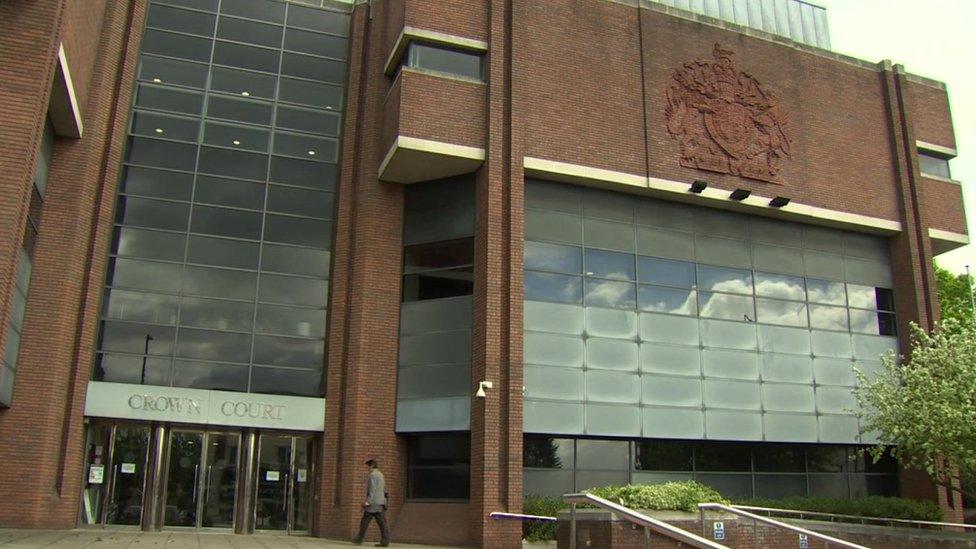RAAC: Inside a Tottenham school with problem concrete
- Published
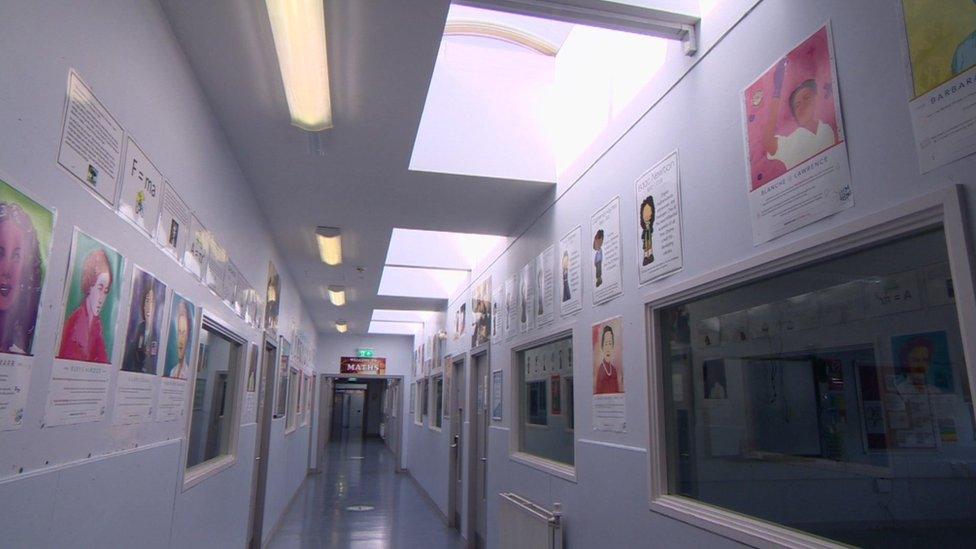
Headteacher Andy Webster said he had to evacuate buildings immediately after RAAC was found in the school's roof
What would you do if you found out your building contained potentially dangerous concrete?
It's an issue Park View School in Tottenham, north London, had to confront when a survey showed the roof in its building contained reinforced autoclaved aerated concrete (RAAC).
Six months on, as the new term begins, they're relocating pupils to on-site portable cabins - but the RAAC remains.
They invited BBC London to see how it's impacted them.
Headteacher Andy Webster explained when he was told classrooms on either side of a corridor in their maths, history and geography contained RAAC, they "had to evacuate those spaces".
"[Surveyors] came in initially not expecting to find any problems, and then very quickly said 'you now need to leave this part of the building'," he explained.
"I was assuming they meant next week... and they said, 'no don't use any of these classrooms from now'."
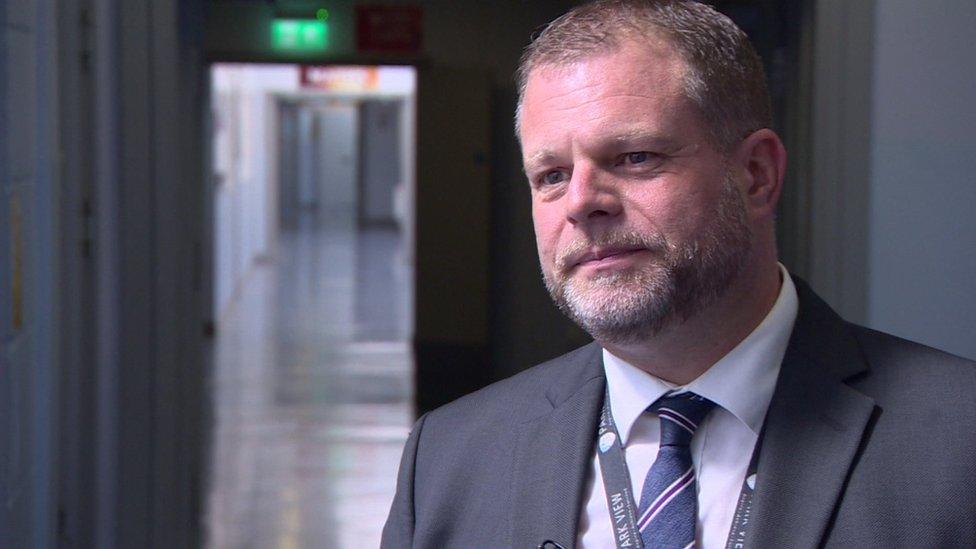
Andy Webster advised other heads to "dig in" and "try not to panic"
"You have that initial kind of rush of panic... the children having already had such a disruptive time during Covid, what can we do to avoid having kids at home, and where can we put them?"
He added: "We simply didn't have enough spaces to teach those children."
Staff had to strip the classrooms and put resources in storage because there was nowhere else for them to go.
Meanwhile, up to 300 pupils were initially taught by year group in the hall, gym and dance studios, but this wasn't a suitable long-term solution.
"We realised even getting the temporary fix in was going to take months," Mr Webster said.
While the school kept Year 11 in due to exams, all other year groups had to spend one day at home every week on a rolling basis.
Staff also found the new set-up challenging, having to teach a changing combination of virtual and face-to-face lessons each day.
Six months later, and affected pupils are starting the academic year in 15 temporary portable cabins, but the school still hasn't been able to find a way to deal with removing the RAAC in the rest of the school safely.
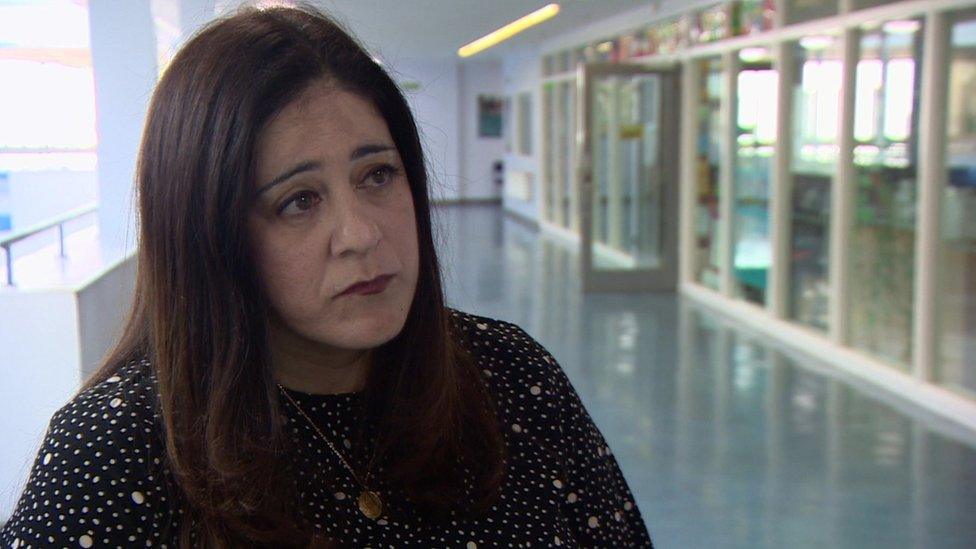
Haringey Council's leader says the government needs to give "assurances" over future costs
Haringey Council Leader Peray Ahmet acknowledged they're "not there yet", but said disruption has "been managed".
"Six months down the line there are still some issues that need to be resolved, but all the children will be back - there is a staggered return, there may be a slight delay for some," she said.
She explained the decision to use portable cabins "has cost us millions", and even though the Department for Education has agreed to reimburse the council, it "had to move really quickly" to approve them.
"Whatever that solution is it's going to cost money, so we need to hear what the government has to say on this really, and they need to give us those assurances," she added.
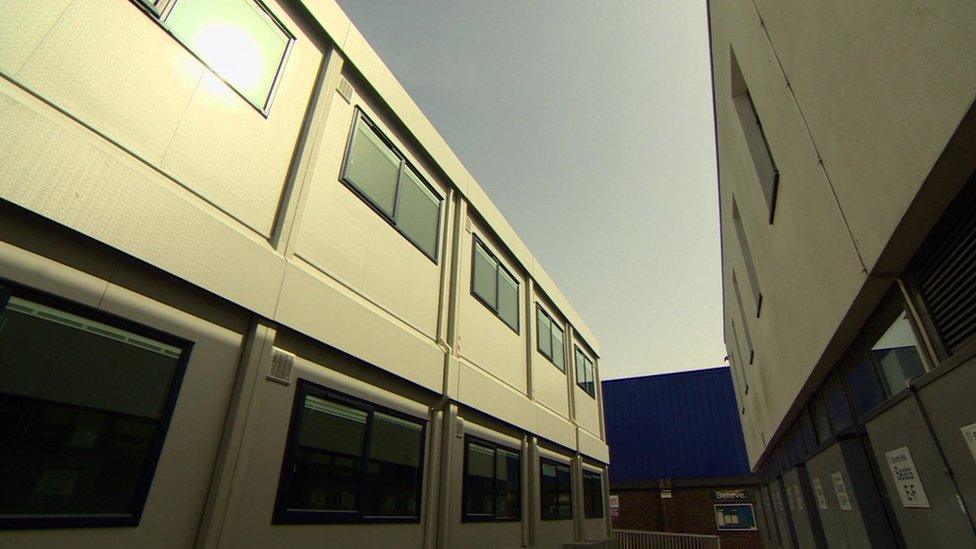
Pupils are now being taught in multi-storey portable cabins while the affected block is closed
Meanwhile, Mr Webster offered advice to fellow headteachers to "try not to panic".
"Dig in, there's not much resilience left in the school system and we're very tired. It's going to get tougher to get that accommodation," he said.
"Look to your local authority for support, talk to your Multi Academy Trust if you're in one.
"Ignore the noise and think about the kids."
Education Secretary Gillian Keegan, said: "I know this is the last way parents, teachers and children affected by this wanted to begin the new term, but it will always be my priority to ensure the safety of pupils and staff.
"Thanks to the hard work of schools, colleges, councils, diocese and academy trusts, the majority of settings where RAAC has been confirmed have opened to all pupils for the start of term.
"We will continue to support all impacted settings in whatever way we can, whether that's through our team of dedicated caseworkers or through capital funding to put mitigations in place.
"We are also expediting surveys and urging all responsible bodies to tell us what they know about RAAC, so we can be confident that settings are safe and supported."

Follow BBC London on Facebook, external, Twitter , externaland Instagram, external. Send your story ideas to hellobbclondon@bbc.co.uk, external
- Published6 September 2023

- Published5 September 2023
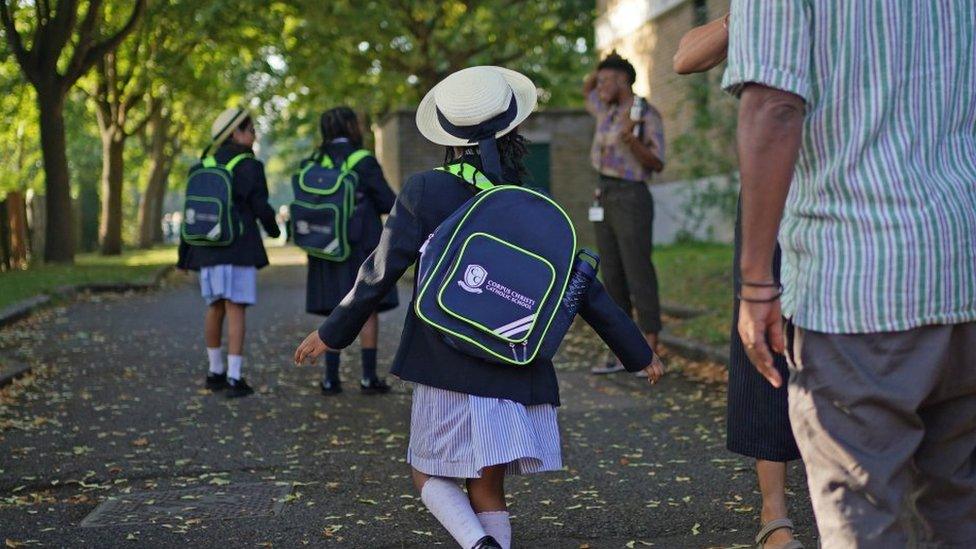
- Published25 August 2023
